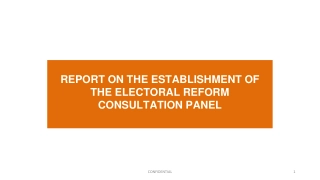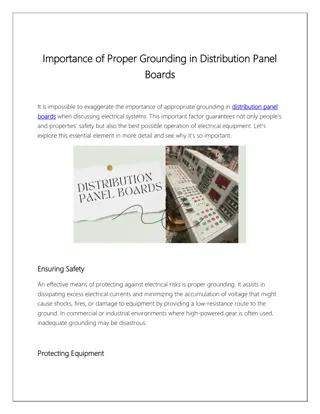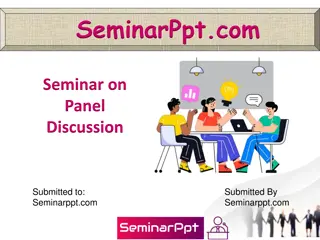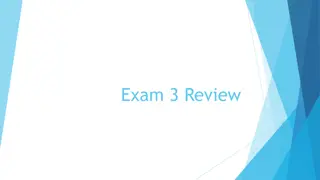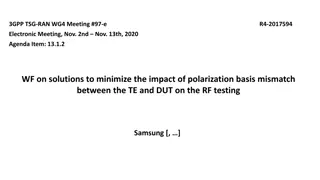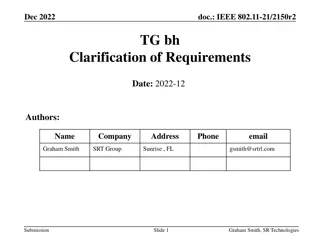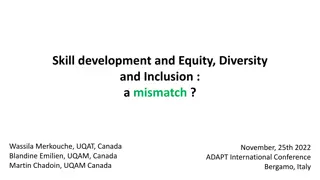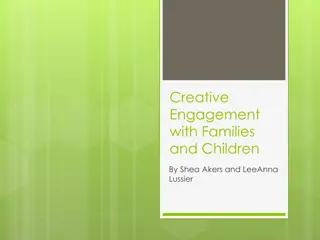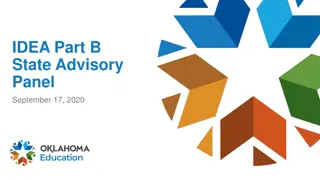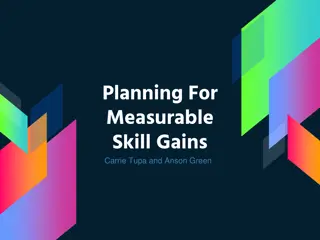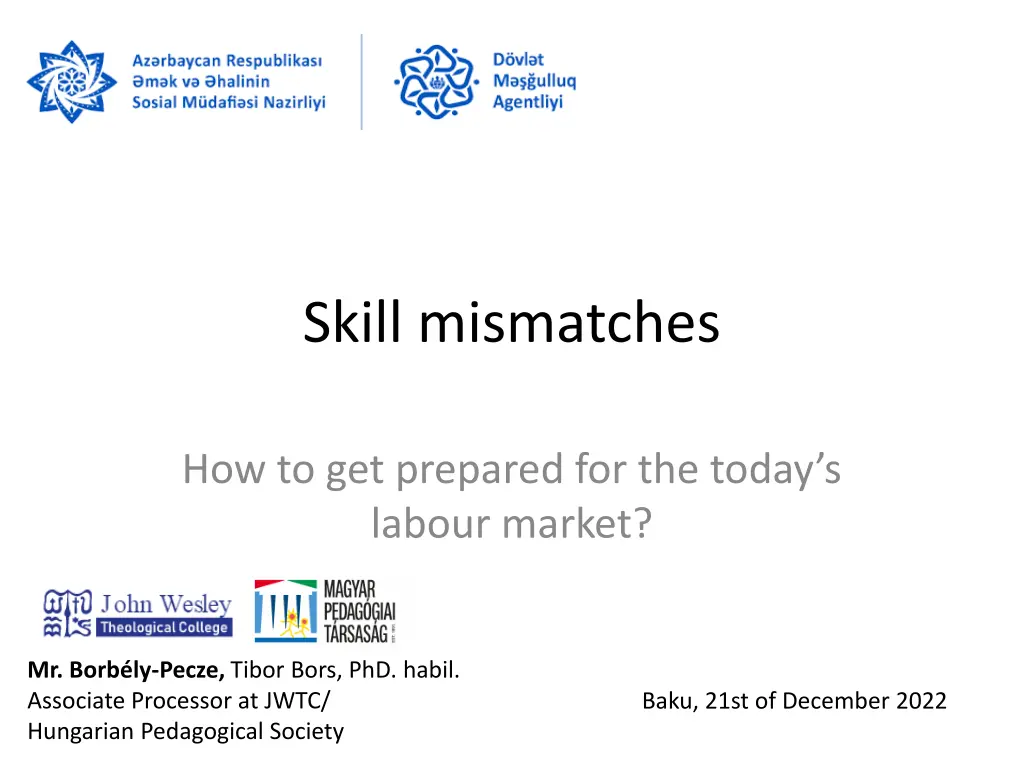
Addressing Skills Mismatches in Today's Labour Market
Learn about the impact of skills mismatches on individuals, companies, and governments, along with solutions and approaches to prepare for the current labour market challenges. Discover how informal apprenticeships, on-the-job learning, non-formal skills training, and validation processes can help bridge the skills gap. Explore the importance of job evaluation methods in understanding educational requirements for occupations.
Download Presentation

Please find below an Image/Link to download the presentation.
The content on the website is provided AS IS for your information and personal use only. It may not be sold, licensed, or shared on other websites without obtaining consent from the author. If you encounter any issues during the download, it is possible that the publisher has removed the file from their server.
You are allowed to download the files provided on this website for personal or commercial use, subject to the condition that they are used lawfully. All files are the property of their respective owners.
The content on the website is provided AS IS for your information and personal use only. It may not be sold, licensed, or shared on other websites without obtaining consent from the author.
E N D
Presentation Transcript
Skill mismatches How to get prepared for the today s labour market? Mr. Borb ly-Pecze, Tibor Bors, PhD. habil. Associate Processor at JWTC/ Hungarian Pedagogical Society Baku, 21st of December 2022
Definition: Skills mismatch discrepancy between the skills that are sought by employers and the skills that are possessed by individuals. mismatch between skills and jobs education and training are not providing the skills demanded in the labour market OR economy does not create jobs that correspond to the skills of individuals. (ILO, 2020)
Low- and high-skilled equilibrium and skills mismatch
Effects at different levels: individuals/ governments/ companies At the individual level there are serious wage penalties especially for over qualification that eventually affect both job and life satisfaction. For companies skills mismatch has negative consequences for productivity and competitiveness, which affects their ability to implement new products, services or technologies For countries and regions skills mismatch can increase unemployment, and affect competitiveness and attractiveness to investors, meaning lost opportunities on the pathway to productive transformation and job creation. (ILO, 2020)
Solutions and approaches In less formal economies Informal apprenticeships are the primary source of technical and vocational skills development in Sub-Saharan Africa, South Asia and even Latin America, and is emerging in importance in countries in Central Asia. This sort of training is very relevant to enterprises that take on a learner and usually more accessible than formal technical and vocational training programmes, but it does suffer from quality concerns On-the-job learning by doing refers to unstructured experiential learning where there is no planned intent to be trained by a more experienced person (as in an apprenticeship), but where technical, vocational, or transferable skills are acquired in the process of an individual carrying out day to day work Non-formal skills training aimed at youth and/or adults is often short duration (typically 1-6 months), and may be skills training Non-traditional means of acquiring skills People acquire skills throughout their lives via non-traditional means, including for example from TV, the internet, radio, smart phones, reading, computer gaming, playing sports, participation in community clubs, associations and societies. (ILO, 2017). In formal economy Short-term training by the state-firms-individuals & ILA (individual learning account) give people of working age a budget to spend on training to improve their skills and employability. (EC, 2022) validation of non-formal and informal learning A skills validation process allows individuals to identify, document, assess and certify their skills. (EC,2022) Job evaluation method: The job evaluation method is based on the assessments of professional job analysts who are tasked with measuring the educational requirements of occupations for the purpose of constructing occupational dictionaries (such as DOT or O*NET in the United States or SOC in the UK, ESCO in the EU.
What can be done in Azerbaijan? What to do? Companies level: it negatively effect productivity and competiveness offer short type mentoring programmes validate the non-formal and informal skills of your employees apply job evaluation and reorganisation What to do? At the individual level it effects wages, job satisfaction, job mobility Use career guidance and validation services Develop your skill portfolio and keep it updated use your savings for learning as well via ILA Relay on your community for informal apprenticeship and informal/ non-formal online learning What to do? Develop competency-based matching like ESCO Finance ILA Set up career counselling and validation services At the state/ city level: lower tax income, less competitive economy
References European Economic and Social Committee (2018). Skills Mismatches An Impediment to the Competitiveness of EU Businesses https://epale.ec.europa.eu/sites/default/files/skills_mismatches.pdf ILO (2020). What is skills mismatch and why should we care? Geneva https://www.ilo.org/skills/Whatsnew/WCMS_740388/lang--en/index.htm ILO (2017). / ROBERT PALMER: JOBS AND SKILLS MISMATCH IN THE INFORMAL ECONOMY https://www.ilo.org/wcmsp5/groups/public/--- ed_emp/---ifp_skills/documents/publication/wcms_629018.pdf ILO (2017). How Useful is the Concept of Skills Mismatch? Seamus McGuinness, Konstantinos Pouliakas, Paul Redmond https://www.ilo.org/wcmsp5/groups/public/---ed_emp/--- ifp_skills/documents/publication/wcms_552798.pdf CEDEFOP (2012) Skill mismatch: The role of the enterprise. Luxembourg https://www.cedefop.europa.eu/files/5521_en.pdf
A few fresh own references Borb ly-Pecze (2022). : Overview of international best practices and innovative approaches to career guidance services (pp.12) ILO Moscow Office (draft) Borb ly-Pecze Tibor Bors, Florian Kadletz, European Training Foundation (ETF) (2022). A REVIEW OF NATIONAL CAREER DEVELOPMENT SUPPORT SYSTEMS: Armenia, Azerbaijan, Georgia and Ukraine Borb ly-Pecze T. B., Hlou kov L., prl k T. (2021). Career/lifelong guidance systems and services: continuous transformations in a transition region: The case of three Central and Eastern European Countries INTERNATIONAL JOURNAL FOR EDUCATIONAL AND VOCATIONAL GUIDANCE 21 : 2 pp. 1-25. , 25 p. Borb ly-Pecze Tibor Bors (2021). Labour market management skills among career practitioners: tackling increasing complexity In: Harrison, Cynthia; Villalba, Ernesto; Kettunen, Jaana; Vuorinen, Raimo (eds. ) Digital transitions in lifelong guidance: rethinking careers practitioner professionalism: a CareersNet expert collection. Luxembourg, Luxemburg : ETF (Cedefop) pp. 103-119. , 17 p.

